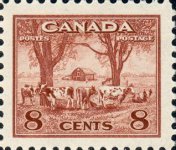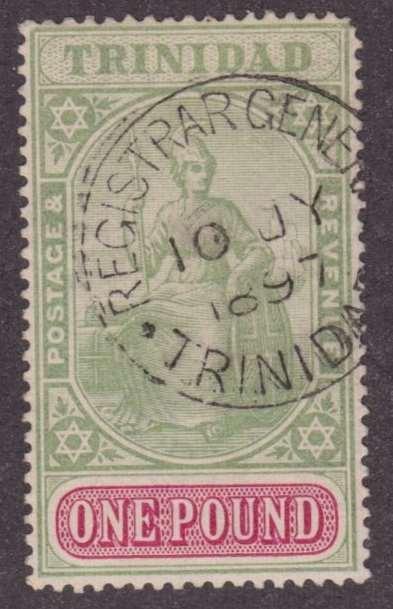
Discussion - Member to Member Sales - Research Center

Discussion - Member to Member Sales - Research Center

Regards ... Tim.

Login to Like
this post
While I have been a member of philatelic discussion groups other than Stamporama, one of the aspects I particularly enjoy about SOR is its avoidance of politics. Either directly or indirectly. In other words, allow the stamps (and by extension, postal history) to tell the story.
Have seen very similar (if not identical) content appear on other philatelic discussion sites of late. Absent any supporting narrative (from the OP).
It appears (at least to me) that "lifestoryteller" is a commercial enterprise, the primary focus of which is organization of guided tours of the DPRK. In contrast to, say, a humble non-commercial philatelic enthusiast.
The history, culture, and politics of North Korea are complicated and often intertwined. And occasionally fraught with emotion.
Believe transparency is important.

4 Members
like this post.
Login to Like.
Having looked at all the exhibit, my initial impression was that of militaristic propaganda. There are really no stamps showing how the ordinary folk live, survive or go about their daily lives.
Where are the stamps showing the labourers toiling in the fields, their homes, cuisine, culture etc.
It was also difficult to read the English script because of the pictorial pages.
On a separate note could we have a link that allows the left/right arrows on a keyboard to jump to the previous/next image, rather than having to scroll up or down and click the next image or number.

1 Member
likes this post.
Login to Like.
Personally, having studied DPRK, I found this exhibit interesting. And so - considering the country is all about a totalitarian dictatorship that lets the world know almost nothing about real life there - I couldn't take umbrage with the display. It was exactly as I thought it would be.
All countries use stamps to tell "their story" as they want other countries to see them. Hitler had a stamp showing how children were loved. The US had a stamp showing how black folk were respected. Canada had ... well, um ... a stamp with a picture of a beaver.
Putting together my "Philatelic History of the Holocaust", I found no contemporaneous stamps depicting people put on trains or thrown into death camps - real life, real people stuff. But every time the Nazis took over a country they loved to put out stamps with idyllic country scenes.
Just a personal opinion.
Dave.

3 Members
like this post.
Login to Like.
The design of the exhibit is a perfect match for the subject: bombastic, over the top sugar coated social realistic propaganda. In a twisted way it is funny. It also made me think of the film Liberation Day, that documents the first ever rock concert in North Korea by a band from the west (well, sort of): the Slovenian industrial underground band Laibach. Why they were ever allowed in is a mystery, given their controversial background (just Google them). On the other hand: North Korean propaganda and Laibach are not that far apart (one of their best known songs is a cover of a Queen hit, literally translated in German. The frightening effect is that it sounds as if Goebbels or Hitler had written the lyrics. )


2 Members
like this post.
Login to Like.
The old adage "History is written by the victors" is unfortunately true... especially in stamps. Would you expect the Soviet Union to have issued stamps celebrating life in the gulags... or North Koreans showcasing it's starving people? History is full of lies and half-truths. Even today, people are trying to erase history because it doesn't appeal to them.

5 Members
like this post.
Login to Like.

We have a new exhibit "The History of North Korea as told in Stamps", posted by new member "lifestoryteller".
Regards ... Tim.

Login to Like
this post
02:10:37pm
re: The History of North Korea as told in stamps
While I have been a member of philatelic discussion groups other than Stamporama, one of the aspects I particularly enjoy about SOR is its avoidance of politics. Either directly or indirectly. In other words, allow the stamps (and by extension, postal history) to tell the story.
Have seen very similar (if not identical) content appear on other philatelic discussion sites of late. Absent any supporting narrative (from the OP).
It appears (at least to me) that "lifestoryteller" is a commercial enterprise, the primary focus of which is organization of guided tours of the DPRK. In contrast to, say, a humble non-commercial philatelic enthusiast.
The history, culture, and politics of North Korea are complicated and often intertwined. And occasionally fraught with emotion.
Believe transparency is important.

4 Members
like this post.
Login to Like.

re: The History of North Korea as told in stamps
Having looked at all the exhibit, my initial impression was that of militaristic propaganda. There are really no stamps showing how the ordinary folk live, survive or go about their daily lives.
Where are the stamps showing the labourers toiling in the fields, their homes, cuisine, culture etc.
It was also difficult to read the English script because of the pictorial pages.
On a separate note could we have a link that allows the left/right arrows on a keyboard to jump to the previous/next image, rather than having to scroll up or down and click the next image or number.

1 Member
likes this post.
Login to Like.
08:14:49pm
re: The History of North Korea as told in stamps
Personally, having studied DPRK, I found this exhibit interesting. And so - considering the country is all about a totalitarian dictatorship that lets the world know almost nothing about real life there - I couldn't take umbrage with the display. It was exactly as I thought it would be.
All countries use stamps to tell "their story" as they want other countries to see them. Hitler had a stamp showing how children were loved. The US had a stamp showing how black folk were respected. Canada had ... well, um ... a stamp with a picture of a beaver.
Putting together my "Philatelic History of the Holocaust", I found no contemporaneous stamps depicting people put on trains or thrown into death camps - real life, real people stuff. But every time the Nazis took over a country they loved to put out stamps with idyllic country scenes.
Just a personal opinion.
Dave.

3 Members
like this post.
Login to Like.

Auctions - Approvals
re: The History of North Korea as told in stamps
The design of the exhibit is a perfect match for the subject: bombastic, over the top sugar coated social realistic propaganda. In a twisted way it is funny. It also made me think of the film Liberation Day, that documents the first ever rock concert in North Korea by a band from the west (well, sort of): the Slovenian industrial underground band Laibach. Why they were ever allowed in is a mystery, given their controversial background (just Google them). On the other hand: North Korean propaganda and Laibach are not that far apart (one of their best known songs is a cover of a Queen hit, literally translated in German. The frightening effect is that it sounds as if Goebbels or Hitler had written the lyrics. )


2 Members
like this post.
Login to Like.

re: The History of North Korea as told in stamps
The old adage "History is written by the victors" is unfortunately true... especially in stamps. Would you expect the Soviet Union to have issued stamps celebrating life in the gulags... or North Koreans showcasing it's starving people? History is full of lies and half-truths. Even today, people are trying to erase history because it doesn't appeal to them.

5 Members
like this post.
Login to Like.

